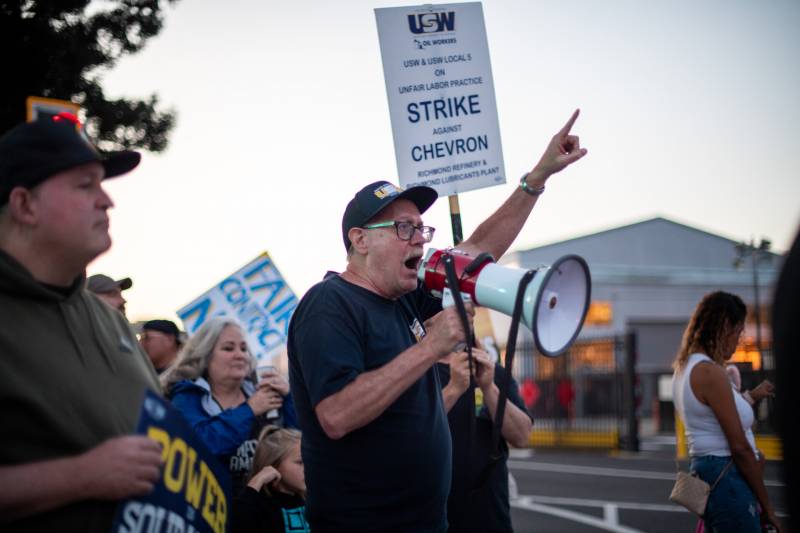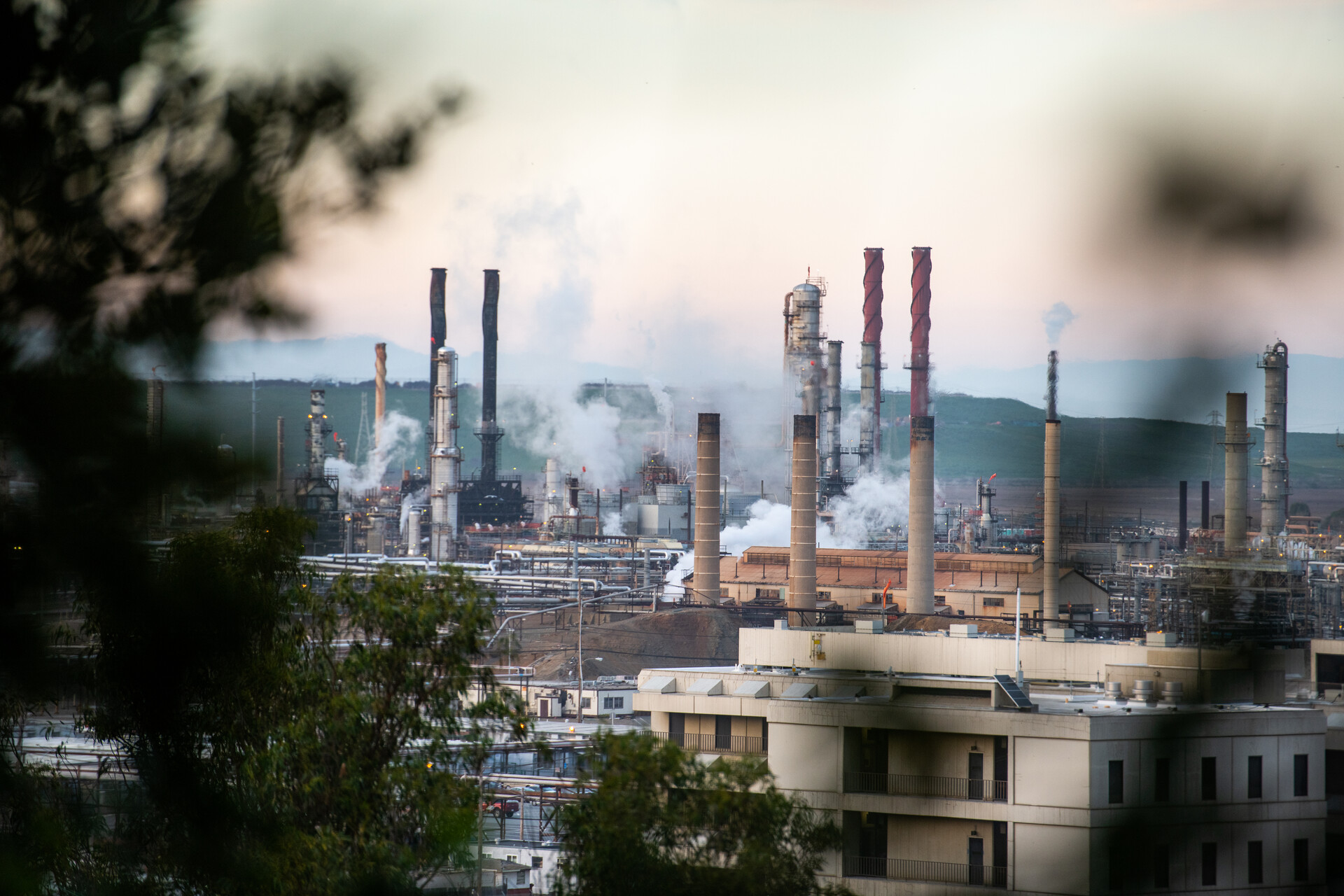Hundreds of unionized workers who’ve been striking against Chevron’s Richmond refinery for more than two months have voted to ratify a contract with the energy giant, ending a bitter labor dispute at one of the West Coast’s major oil-refining facilities.
Results out Saturday afternoon show the new four-year contract was approved by a slim majority of the United Steelworkers Local 5 members who work at the plant, according to B.K. White, vice president of the union chapter.
“I’m proud of the women and men who held the line for over two months. They showed unbelievable solidarity and resolve as they exercised their right to strike in an attempt to improve their and their co-workers’ lives,” White said.
Chevron representatives say the striking employees will return to work in the coming weeks.
USW Local 5 and Chevron have yet to release details of the contract, but it looks like union members may not have gained much from the walkout.


